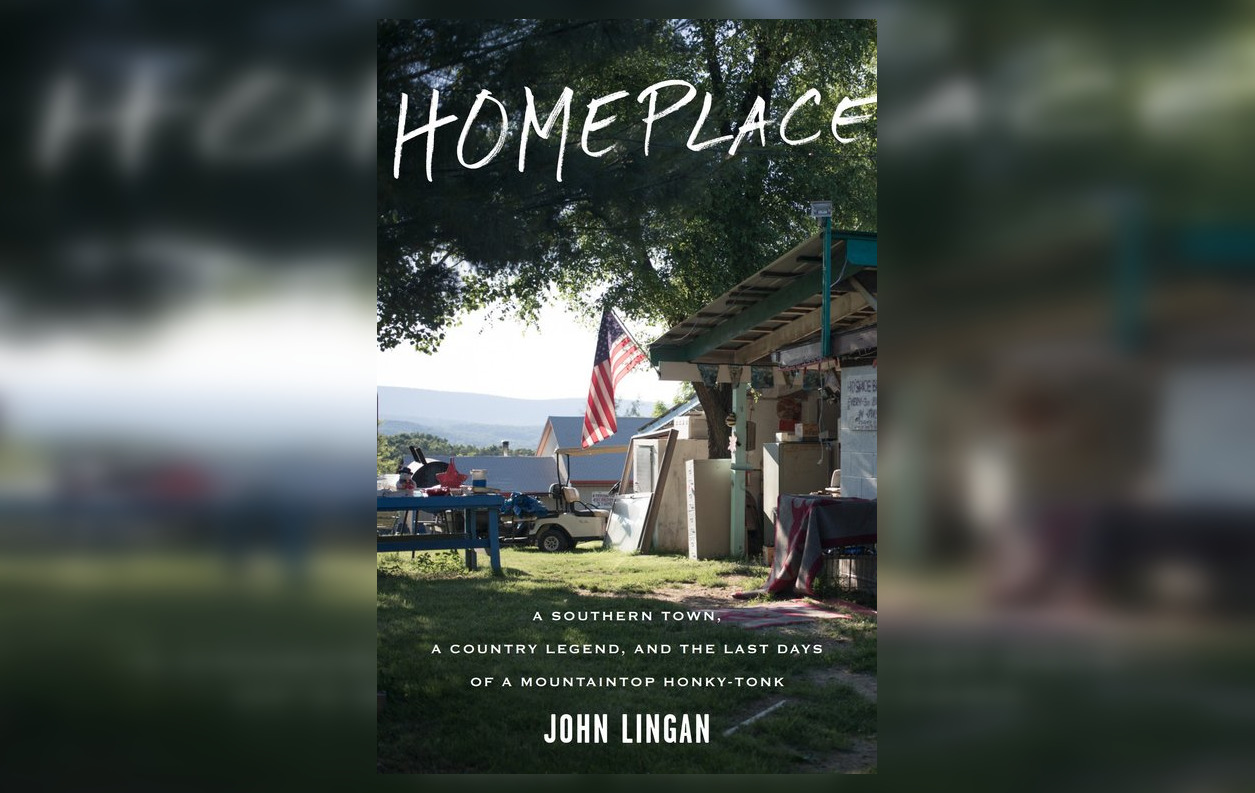Imagine a bar with Christmas lights hanging year-round, illuminating wooden stools indented from years of sitting– a place where people say hello and exchange hugs rather than stare at cell-phone screens. The signature drink is called ‘Rocketfuel’ that both old and young sit together sipping during evenings of karaoke. This is what it was like at the Troubadour, a true honky-tonk bar sitting high in the Blue Ridge Mountains just outside Winchester, Virginia, and this is where John Lingan’s new book, Homeplace: A Southern Town, a Country Legend, and the Last Days of a Mountaintop Honky-Tonk, begins.
Jim McCoy, the owner of the Troubadour, is the first person we meet in this small town. A mix of talents, McCoy works as a musician, businessman, songwriter, record label owner, and DJ with over seven decades of on-air experience. While McCoy once chased the country music dream, he always found himself sitting just on the cusp of making it big. The glue of the book, he’s the man we keep coming back to, the same as the people in Winchester, always gravitating towards McCoy and the home-away-from-home that he provides at the Troubadour.
While McCoy was never quite able to make a name for himself, he discovered someone who did. Years ago, he gave country idol Patsy Cline her debut on the radio. He saw something in the “ruby-cheeked, sixteen-year-old spark plug without even two spare dollars to her name” and gave her a chance, kick-starting her path towards fame that was cut short by her tragic death at the age of thirty.
Through patient reporting and descriptive story-telling, author Lingan also untangles the history of Winchester beyond McCoy. Lingan takes us to the opening of the restored Patsy Cline House where we meet JudySue, a self-made businesswoman who’s come to Winchester to revive the memory of Patsy. We follow him to The Berkeley Springs International Water Tasting festival where we’re introduced to Jeanne Mozier, a New Yorker and former CIA employee who moved to Berkeley Springs and essentially remade the town. We also see into the lives of Perry Davis, the owner and chef at a local cafe Just Like Grandma’s, Joe Bageant, a renowned political writer who grew up in Winchester and used the town as a basis for his criticism of the country, and Oscar Cerrito-Mendoza, a social activist who immigrated from Mexico.
Lingan turns Winchester into a character itself, mapping out the town’s history and development, and sharing details about the neighborhoods, hotels and restaurants, circling back to the importance of real estate again and again. With each new development, he takes us to different parts of the West Virginia panhandle, showing the tension between old and new, locals and “come-heres,” race and class.
Through the particulars, Lingan sheds a light on different ideas of what it means to be an American. He writes about what it means to be one of the “left-behinds” who are never really ever left behind but leave more of an impact on their community than they may ever know.
In one section, Lingan describes a country song as: “ a song about the past, about feelings so intense they can weaken a person in an instant, out of nowhere. It is a song about the tragic side to having deep roots: they can keep you from moving on.” ‘Homeplace’ resonates with the music described within it. It offers up a version of small-town America: the effects of deep roots and how the past dictates the future, driving events in a way one might not yet understand.




